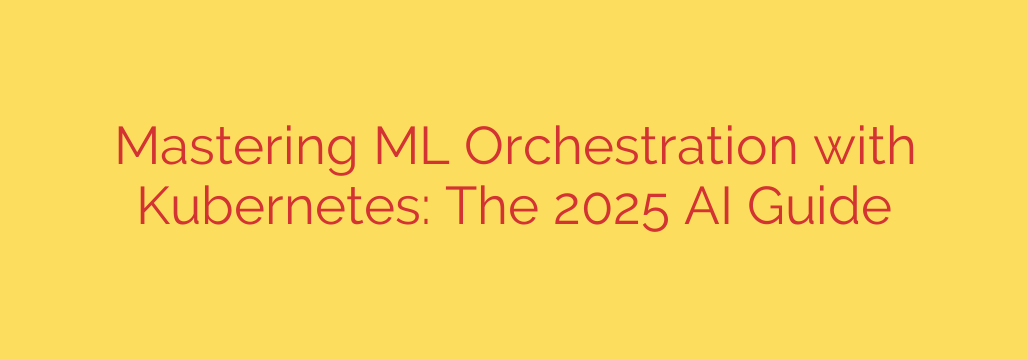
Managing the full lifecycle of Machine Learning models, from data preparation and training to deployment and monitoring, presents significant challenges. These workflows involve numerous steps and dependencies, often requiring substantial computational resources. Without effective management, complexity can quickly lead to inefficiency, resource waste, and difficulty in scaling.
This is where orchestration becomes absolutely essential. It provides the framework to automate, manage, and scale these complex ML pipelines reliably. By treating each stage as a manageable component, orchestration ensures smooth transitions, handles failures gracefully, and optimizes resource allocation.
A leading platform for this critical task is Kubernetes. Its inherent capabilities in managing containerized applications make it a natural fit for the diverse workloads involved in ML. Kubernetes excels at providing scalability, ensuring that training jobs can access necessary computational power and that deployed models can handle fluctuating inference loads. It offers resource efficiency by dynamically allocating resources and managing clusters effectively. Furthermore, it provides consistent environments across development, staging, and production, minimizing the “it worked on my machine” problem.
Leveraging Kubernetes for ML isn’t just about running containers; it’s about utilizing its ecosystem. Tools specifically designed for ML on Kubernetes, such as Kubeflow, offer end-to-end platforms for building, deploying, and managing portable, scalable ML workflows. Other solutions focus on specific areas, like using workflow engines such as Argo for pipeline execution or specialized serving platforms like Seldon or KFServing for optimized model deployment.
Implementing a robust ML orchestration strategy on Kubernetes is becoming the standard for organizations serious about operationalizing AI. It unlocks the potential for faster experimentation, more reliable deployments, and efficient scaling of AI initiatives, ultimately driving greater value from machine learning investments. This approach represents the future of production AI infrastructure.
Source: https://collabnix.com/kubernetes-and-ai-the-ultimate-guide-to-orchestrating-machine-learning-workloads-in-2025/








